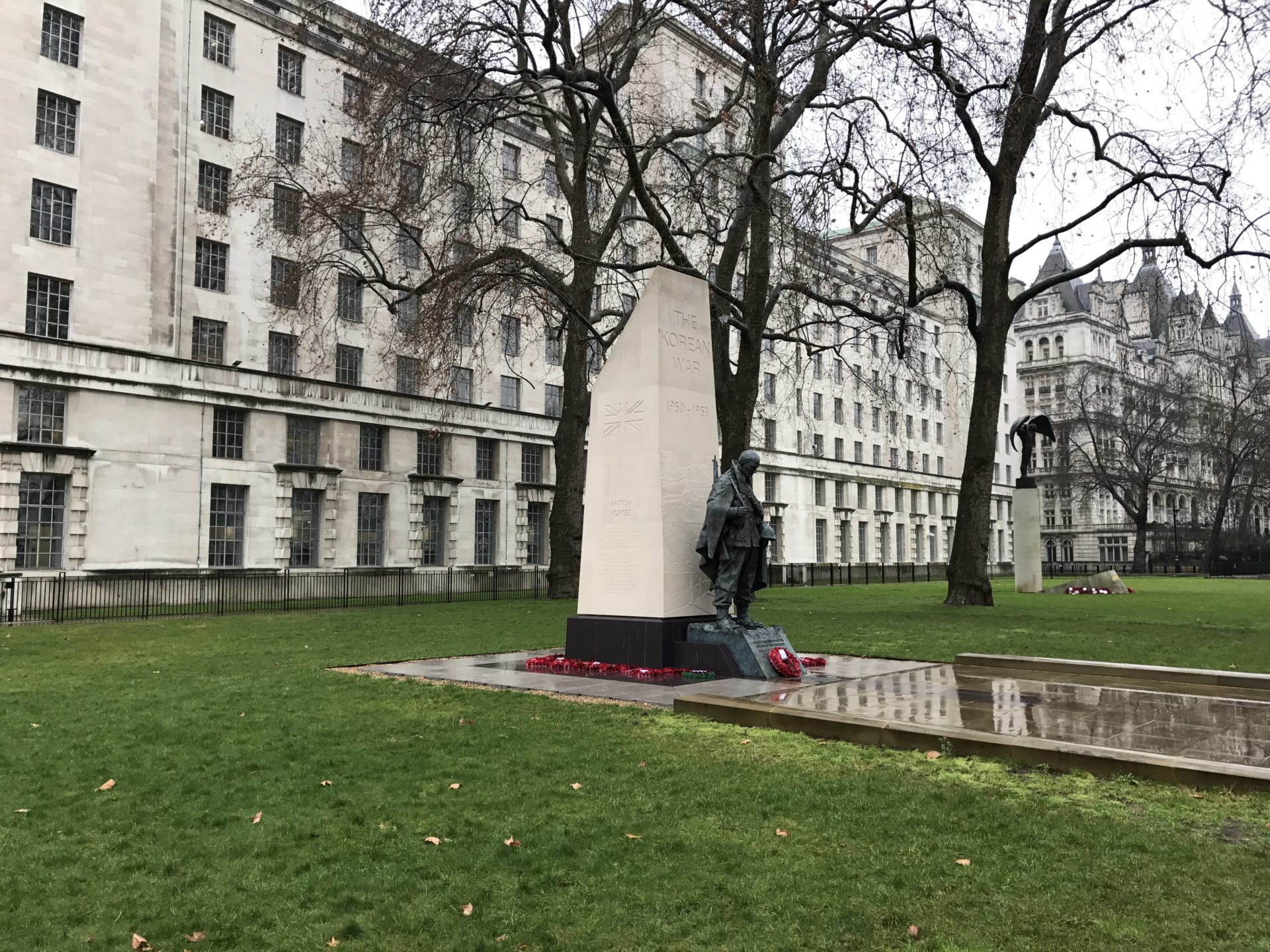UK London (3)
>> My name is Roger Astley. I live in Finchley, North London, and I was in the Royal Navy during the Korean War. I joined the Navy as a boy of 15, and I was obviously there during the Korean War on an aircraft carrier, HMS Unicorn, which transported new planes and brought back to Singapore the old ones that had all been smashed up or crashed in, whatever. We also provided new pilots for them, and we took everything up to Japan anyway, to Sasebo, including two London buses. I think it was a morale booster for the troops to see a London bus driving round Korea. That's it for me. Wait. All right? Wait a minute. Anything else you want?
>> Well, so what did you experience there? I know what you did.
>> All right. What did I experience?
>> Anything that you saw, kids, orphans or other units, Americans?
>> No, we took everybody. We even took American sailors up there on our ship, and they loved our food, which I'm afraid that the English didn't like our food, but the Americans liked it, which was quite unusual because I went on American ships, and I always thought their food was better than ours. We got on all right, and even when we went ashore drinking, and we'd had a few drinks, a few beers and was beginning to talk, we got on well with the Americans as we did with most of the others.
>> Like who?
>> Well, there was Australian troops there, Belgium. There was a Dutch hospital ship. In other words, there were quite a few other nations. The harder ones, obviously, was the Oriental nations that was there. That was harder for us to get on with them.
>> Because of the language barrier.
>> Yes, basically, whereas with the ... Obviously the most people in the world speak English away, and us English, especially myself who has an accent from the North of England, we don't speak English as good as we should do, but it was an experience. I don't think we was ever frightened. We was only attacked three times by aeroplanes, and we chased them off, but we didn't have any trouble. Apart from that, you just did your job. You just carried on doing what you did.
>> So what do you feel about Korea right now as compared to what you left it?
>> Well, I'm glad it's getting more affluent than ... It's a machine country now, I should imagine, from what it was then. In fact, I think it was the making of South Korea in a way because it's very modern in everything. It's good that they do, and their exports is good whereas I don't know so much about the North, but I don't think it's doing anywhere near as good. Even the Chinese seem to be a bit sick of them. But apart from that, yeah, I've got good memories of it.
>> You do. Have you returned?
>> Pardon?
>> Have you ...
>> I have never returned, and I always used to be amused at one of the ports we went to, I think it was [FOREIGN LANGUAGE], one of them, there was a great big notice on the roof of the warehouses, "Through this port passed the best damn fighting men in the world." That was the Americans, of course. Well, of course some of our people climbed on the roof and put, "And the Brits." And it was just a job at the time. I think because we never really got ... saw action like the Army did, to us, it was a job with a bit of restrictions in it. The ship could never broadcast its name. We all had different call signs. You couldn't let the enemy know what ships was there, so we had different call signs, but for the Navy, I don't think ... It was a few early on got killed, but most of them didn't. Most of us was too far away. It was the Army took the brunt of it, and of course they weren't professional soldiers anyway, a lot of them, as you see, there's lads had to go in for 2 years training. Well, there's people like myself and the majority of the Navy was all time-serving people. And of course when I got out of the Royal Army, where I lived, a seaside resort, I went back to sea again in the Merchant Navy where I could go to the West, to Americas and South America and the West Indies, and in other words, I had a good life.
